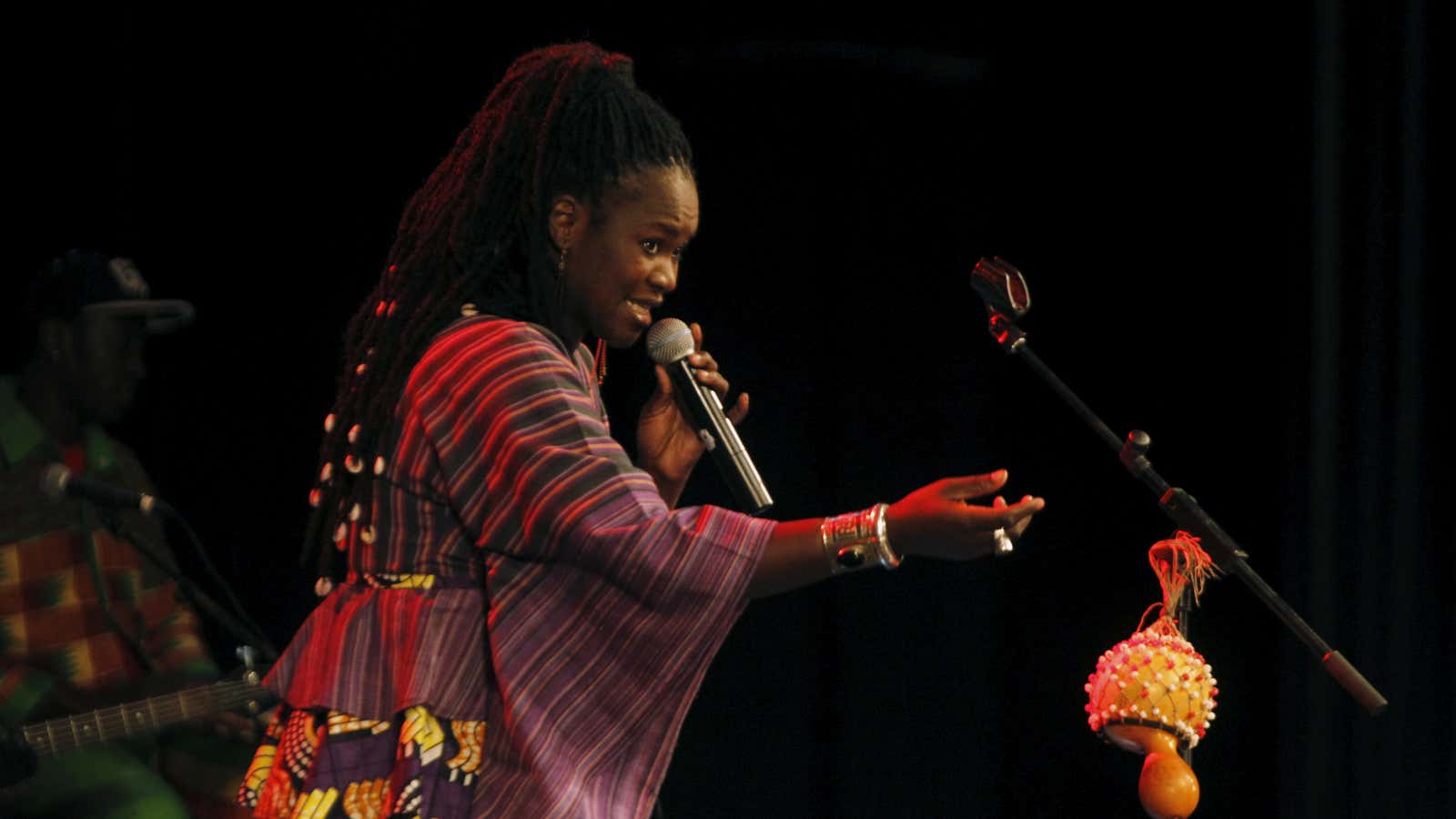The United Nations considers Non-Fungible Tokens (NFTs) a critical element for saving Africa’s creative industry from low royalties, piracy, limited opportunities, and low concert turnouts. An NFT is a digital asset that represents physical objects like art, music, or videos.
Regional program communication specialist at the United Nations Development Programme (UNDP) Michelle Muita tells Quartz that NFTs can help African writers, musicians, producers, actors, and fine art lovers eliminate fraud from their business and protect their intellectual property.
“An increasingly common use of NFTs is for producing concert tickets, which can’t be replicated, unlike traditional and PDF tickets. This will prevent unscrupulous people selling the same ticket multiple times to innocent people who only realize they have been scammed when they are turned away at a concert venue,” says Muita.
NFTs early days in Africa
MTN was the first African company to host a metaverse music concert involving NFTs. In January, Nigeria music star BNXN created the HeadsByBuju NFT project to reward his fans, with owners of the NFTs using them to access his physical and virtual concerts. But no other notable African musician is particularly active in this space.
While artists have been creating digital art for decades, Muita notes, being paid for them was another matter, and “NFTs can help ensure they are. NFTs can be coded to have multiple owners, known as fractional ownership. A fractionalized NFT with 100 tokens could allow up to 100 people to each own a part of the NFT, enabling co-ownership of valuable art works.”
But she warns of a hidden caveat for artists. For digital artwork NFTs, the artwork is not normally stored on the same blockchain as the NFT. “Instead, the file for the digital artwork is held elsewhere, and the NFT merely points to the file. There is a risk this file could be deleted, accidentally or deliberately, so the owner must ensure they store a copy of the file containing the digital artwork.”
Africa’s billion-dollar creative industry is undertapped
Africa’s creative industry is estimated to generate about $4.2 billion in revenue every year. At the height of NFT sales in September 2021, more than $3 billion was being traded monthly in NFTs on OpenSea, the most prominent peer-to-peer marketplace. On the continent, platforms such as NFTfi, AJE: The Afriverse, and Ubuntuland are gaining popularity.
To share knowledge on how to use NFTs to preserve the continent’s cultural heritage, African artists have formed online communities such as the Africa NFT Community, Black NFT Art, Kenyan NFT Club, and Nigeria NFT Community.
Last December, Unicef announced its largest NFT collection ever, and in February, the UN approved Chinese entertainment conglomerate Tencent to lead a project exploring the creation of a standard technical and security framework for NFTs.
UNDP is partnering with the African Union to commemorate 20 years of collaboration, and is using writing, art, and music creatives to showcase their talent in line with Africa’s achievements, with $150,000 up for grabs.
Ten writers and visual artists will undergo two residency programs. Visual artists will be hosted at the Loman Art Gallery in Dakar, Senegal, while writers will be hosted at the Library of Africa and The African Diaspora in Accra, Ghana.
